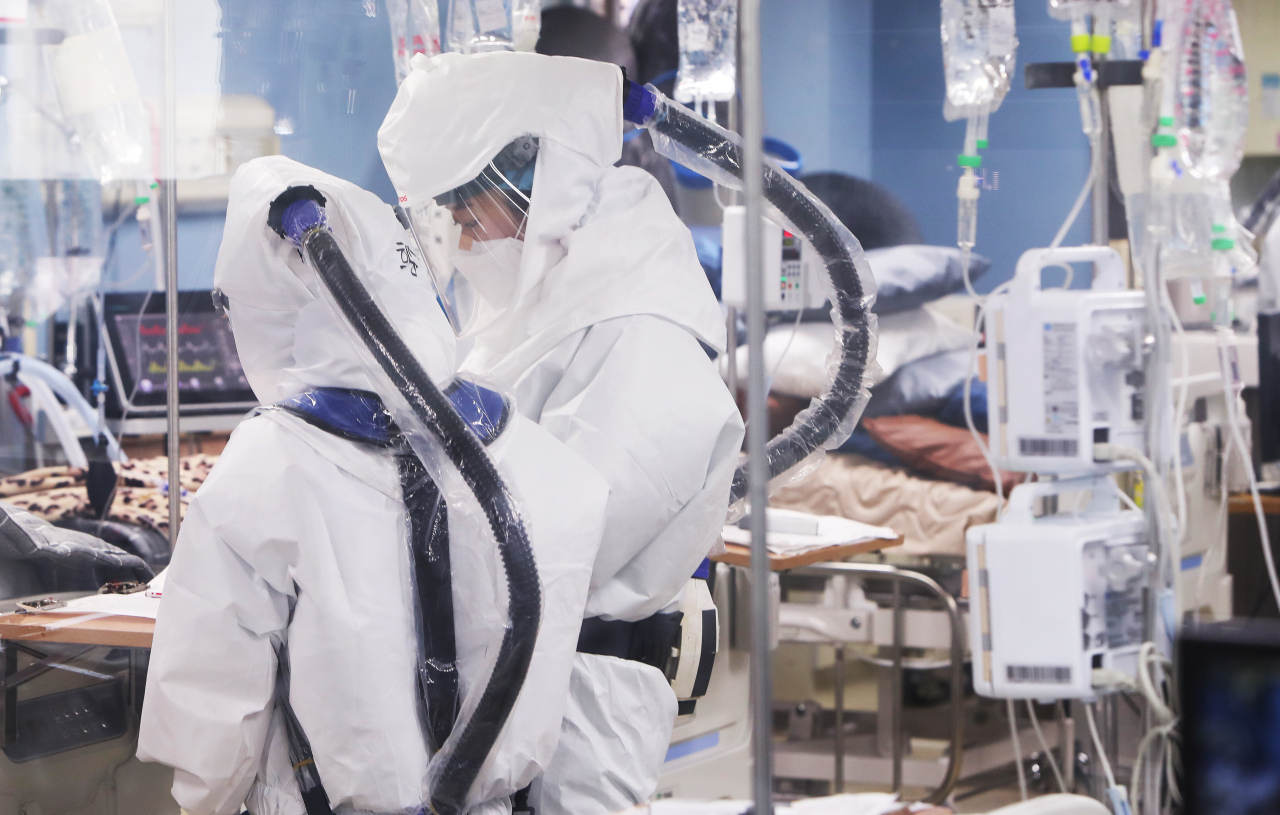
South Korea has confirmed 2,899 more cases of four major contagious variants of the new coronavirus over the past week, including 2,874 of the highly transmissible delta variant, health authorities said Tuesday.
The caseload of such infections reached 16,842 here, with the number of delta cases, first reported in India, tallied at 13,454, according to the Korea Disease Control and Prevention Agency (KDCA).
The tally indicates that the delta variant is becoming the dominant strain of COVID-19 here, making it more difficult for health authorities to curb the spread of the new coronavirus.
The delta variant is behind a recent spike in COVID-19 infections in Seoul and its neighboring areas, while showing signs of spreading much faster into the rest of the country.
The authorities said they found viral loads about 3,000 times higher in the delta variant than those in the original strain.
Health authorities said the country will witness more cases of the variants down the road.
The rate of variant cases detected through gene analysis came to 90.4 percent over the past week, up from 86.9 percent reported a week earlier, the KDCA said.
The corresponding figure for the delta variant was 89.6 percent, up from 85.3 percent a week earlier, according to the health authorities.
On Tuesday, the country added 1,509 more COVID-19 cases, including 1,470 local infections, raising the total caseload to 239,287, according to the KDCA.
To block the inflow of the new emerging strain from India, entrants from the country are mandatorily quarantined at state facilities for seven days before being put under self-quarantine, depending on the results of virus tests. (Yonhap)
The caseload of such infections reached 16,842 here, with the number of delta cases, first reported in India, tallied at 13,454, according to the Korea Disease Control and Prevention Agency (KDCA).
The tally indicates that the delta variant is becoming the dominant strain of COVID-19 here, making it more difficult for health authorities to curb the spread of the new coronavirus.
The delta variant is behind a recent spike in COVID-19 infections in Seoul and its neighboring areas, while showing signs of spreading much faster into the rest of the country.
The authorities said they found viral loads about 3,000 times higher in the delta variant than those in the original strain.
Health authorities said the country will witness more cases of the variants down the road.
The rate of variant cases detected through gene analysis came to 90.4 percent over the past week, up from 86.9 percent reported a week earlier, the KDCA said.
The corresponding figure for the delta variant was 89.6 percent, up from 85.3 percent a week earlier, according to the health authorities.
On Tuesday, the country added 1,509 more COVID-19 cases, including 1,470 local infections, raising the total caseload to 239,287, according to the KDCA.
To block the inflow of the new emerging strain from India, entrants from the country are mandatorily quarantined at state facilities for seven days before being put under self-quarantine, depending on the results of virus tests. (Yonhap)





![[Herald Interview] 'Amid aging population, Korea to invite more young professionals from overseas'](http://res.heraldm.com/phpwas/restmb_idxmake.php?idx=644&simg=/content/image/2024/04/24/20240424050844_0.jpg&u=20240424200058)












![[KH Explains] Korean shipbuilding stocks rally: Real growth or bubble?](http://res.heraldm.com/phpwas/restmb_idxmake.php?idx=652&simg=/content/image/2024/04/25/20240425050656_0.jpg&u=)

